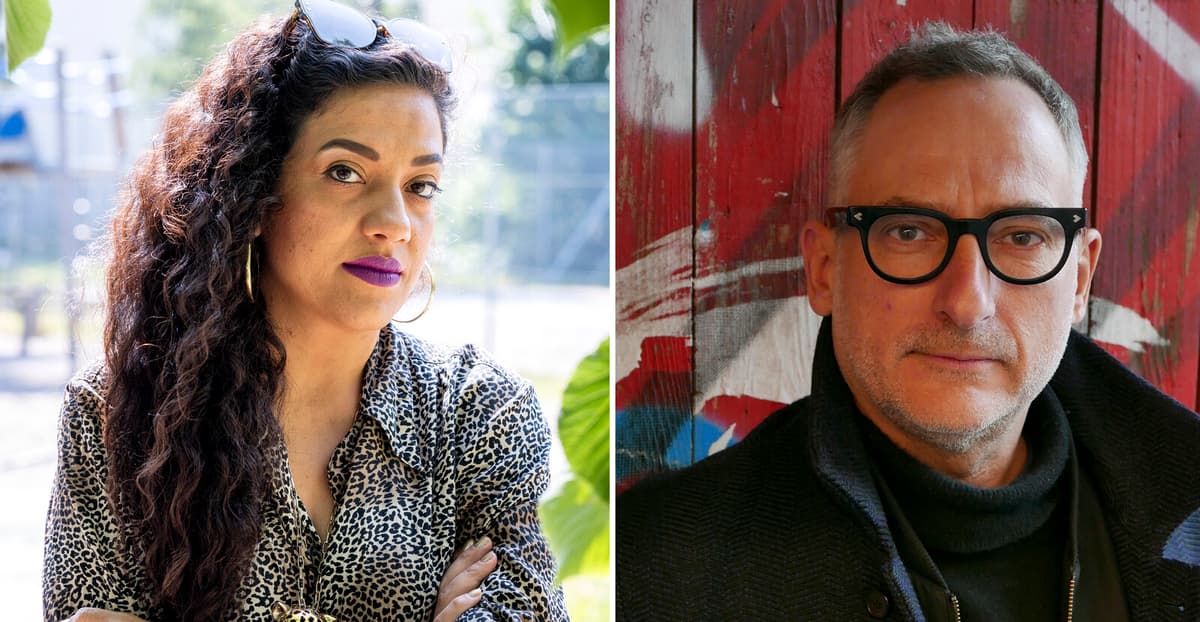Already going to the theater is a political act. This is the opinion of Roland Schimmelpfennig, one of Europe's most noted dramatists, who praises the Book Fair's major investment in drama. At the theater, different perspectives meet, he emphasizes.
One could say that art cannot change the fact that people die or suffer. But I think it is one of the few ways to bring people together and it is pacifist, says Schimmelpfennig.
His signature is the collective theater that accommodates a multitude of voices to be able to depict our multifaceted society.
Then you also have to look for the vertical cut through society, from top to bottom.
Advertisement
Current antiquity
Among the 70 plays that Roland Schimmelpfennig has written is an update of ancient dramas, in "Anthropolis". The questions of antiquity about human existence are constantly current, he believes.
The core of theater is humanity trying to understand itself, and to see itself, these are enormous questions that you never get tired of.
But Athena Farrokhzad has always wondered what happens after the classical plays end. In "Tragedierna" she takes over where Euripides, Sophocles, and Aeschylus put a period, in three new dramas.
In some way, I have had a vague and unsettling feeling that there is a tragedy that begins only when the curtain goes down, she says.
Advertisement
The ancient dramas are a source for our most well-known archetypes, emphasizes Farrokhzad, who uses them to "argue" with the notion of who should play which role in history. Must the Persians always be the losing people and what happens after Antigone has challenged King Creon? But Athena Farrokhzad also shows the high price of resistance – and double-exposes history to the present.
I often experience that those who judge the resistance and uprisings that exist – such as the Palestinian resistance – do not understand, care about, or are engaged in the situation that led to the uprising, she says.
Resistance
At the same time as Athena Farrokhzad deepens the understanding of individuals, her drama poses the question: should we mourn forever or can we change the orders that created the sorrow?
In her "Antigone's legacy" it says: "Art is the last form of life that can speak of resistance", and this belief characterizes her book.
Is it just the case that these women must die forever? I take my starting point in that, and try to write a different order.
Elin Swedenmark/TT
Facts: About the dramatists
TT
Athena Farrokhzad. Debuted with the poem suite "Vitsvit", which was written with the oral tradition of poetry in mind. Since then, she has written several poetry collections and plays, including "Torget" and "Krigerska". Now current with "Tragedierna", three plays that take over where Euripides' "Medea", Sophocles' "Antigone", and Aeschylus' "Persians" end.
Roland Schimmelpfennig. German dramatist who has written 70 plays and four novels. He has often collaborated with Swedish theaters, which have staged "Halva månen", "Sprickan genom världen", and "100 sånger". This fall, his drama will be published in several volumes in Swedish, by Spleen Nordic.
The Palestinian dramatist Dalia Taha converses with Balsam Karam. Thursday.
Is drama literature? With, among others, Johan Hilton and Gertrud Larsson. Thursday.
The anatomy of writing: Drama and novel art, with Roland Schimmelpfennig and Ulf Peter Hallberg. Friday.
Antigone's legacy, with, among others, Athena Farrokhzad and Christina Ouzounidis. Saturday.
Reading of "Skodespelet", a new text by Jon Fosse, in the original language. Sunday.
Colombine Teaterförlag is the main partner and organizer for the theme Drama at the Book Fair 2025, together with Dramatikkens hus (Norway), Eesti Teatri Agentuur (Estonia), Theatre Info Finland (TINFO), and the Book Fair in Gothenburg.
In collaboration with theaters in, among others, Latvia, Lithuania, Iceland, and Denmark.
Besides the theme of drama, the Book Fair also has the theme of love and lust this year.






